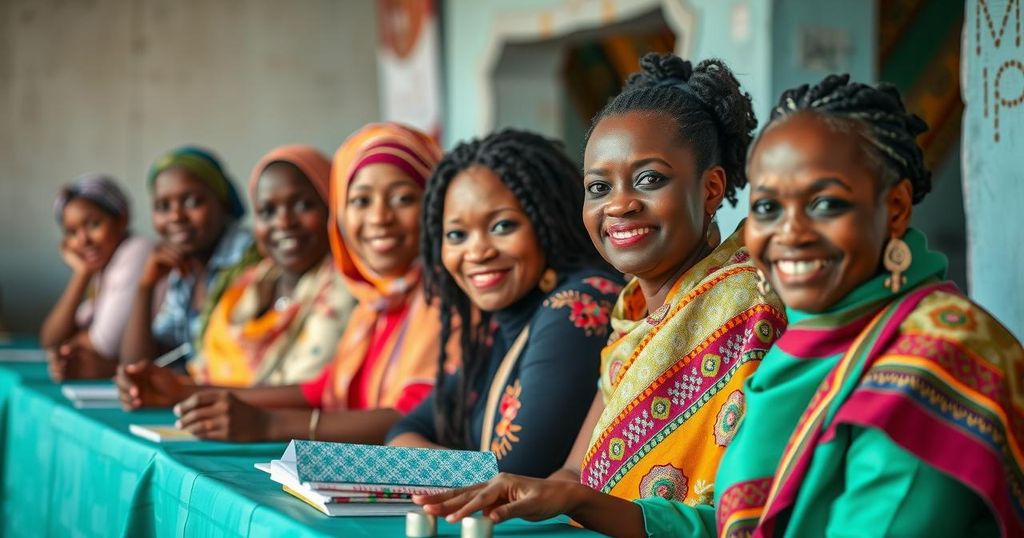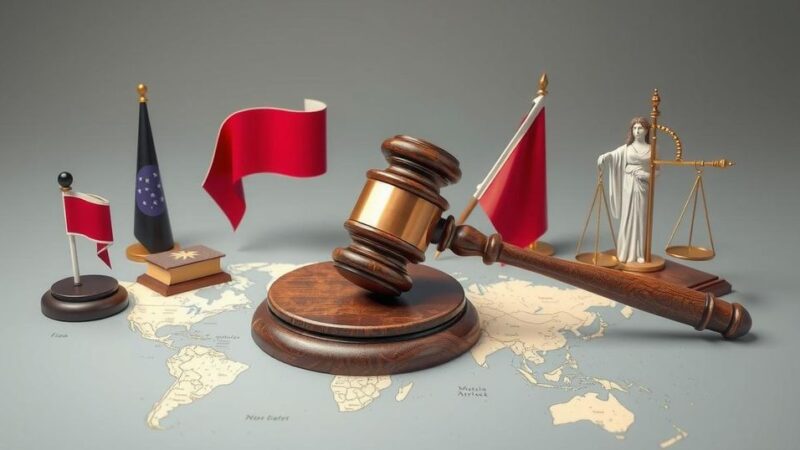The article details how Rima Abdukadir Ahmed transformed her sesame oil business in Mogadishu through mechanization and secured a loan from Premier Bank to increase production. It highlights the broader challenges of accessing finance for women entrepreneurs in Somalia and the role of the Gargaara Company in facilitating loans to underserved businesses. Despite some progress, women continue to receive a disproportionately low share of total loan values, emphasizing the need for ongoing financial support and initiatives to foster entrepreneurship.
In Mogadishu, Rima Abdukadir Ahmed transformed her sesame oil business, originally powered by a camel, into a more efficient operation. By mechanizing her cold press using car parts, Rima increased production significantly. However, to stabilize her supply throughout the year, she sought additional working capital, leading her to Premier Bank. With the bank’s support, Rima secured a two-year loan, enabling her to expand her storage capacity and ultimately increase her output from 150 to 400 liters per month. This positive experience highlights the critical need for financial access in Somalia, particularly for women entrepreneurs seeking to grow their Micro, Small, and Medium Enterprises (MSMEs) in various sectors that are often classified as high-risk by financial institutions.
The Somali financial landscape presents substantial challenges regarding capital access, with only 46% of surveyed businesses capable of securing overdraft facilities. Women-owned enterprises face an even greater barrier, with only 21% able to access these services. In an effort to alleviate this issue, the Somali federal government established the Gargaara Company in 2019, designed to promote lending to underserved MSMEs, particularly those in productive sectors such as agriculture and renewable energy. With an initial fund of $15 million from the World Bank, Gargaara has since successfully distributed approximately $23 million in loans to entrepreneurs, though women still receive less than 10% of the total loan value.
Enhanced financial access through initiatives like Gargaara is vital for the growth of Somali businesses. Since its establishment, Gargaara has issued over 1,600 loans, focusing on increasing entrepreneurship opportunities, specifically aimed at women. Recent investments, including a $19 million contribution from the German development bank KfW, facilitate even more loans across varied sectors, supporting the broader aim of economic empowerment in Somalia. Rima’s story exemplifies the transformative impact of access to finance, illustrating how capital can nurture and expand local businesses and, by extension, contribute to overall economic growth.
Looking ahead, Gargaara plans to adopt a more comprehensive approach to improve credit access. This includes onboarding additional financial institutions and expanding existing capacities tailored to assist women-led MSMEs. By offering innovative products and services and enhancing connections with entrepreneurs, Gargaara aims to create a more inclusive financial environment, thereby fostering growth and development within Somalia’s economy.
Access to finance is a significant factor in the empowerment of women in Somalia, particularly within the context of Micro, Small, and Medium Enterprises (MSMEs). Women entrepreneurs like Rima Abdukadir Ahmed face unique challenges due to traditional financial institutions’ perceptions of high-risk in productive sectors such as agriculture and fisheries. The establishment of supportive initiatives like the Gargaara Company was crucial in providing the necessary capital to these enterprises. With a considerable focus on encouraging women’s financial participation, Gargaara aims to bridge the financing gap and facilitate business growth in Somalia.
In summary, access to financial resources is essential for the growth and sustainability of women-owned businesses in Somalia. The experience of Rima Abdukadir Ahmed underscores the importance of targeted financial initiatives like the Gargaara Company, which has proven effective in providing capital to underserved entrepreneurs. While progress has been made, there remains a critical need for continued support to ensure women can access the financing necessary to thrive in their ventures, ultimately contributing to Somalia’s economic development.
Original Source: www.worldbank.org







